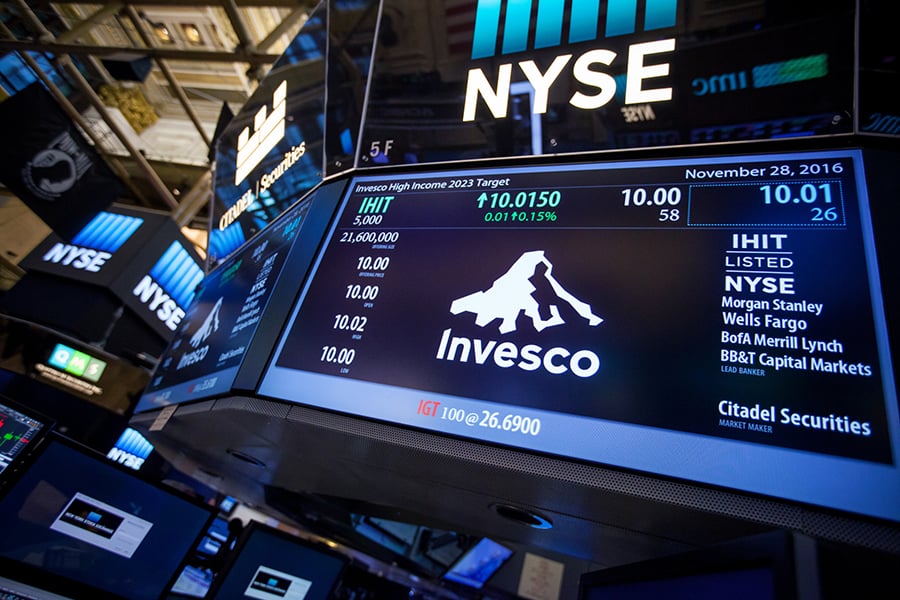The U.S. stock market is having another solid year. You wouldn't know it by looking at the shares of companies that manage money.
The S&P index of 18 asset managers and custody banks is down almost 11% this year, compared with a gain of more than 8% for the broad S&P 500 Index. Some fund companies, including
Invesco Ltd.,
Legg Mason Inc. and Franklin Resources Inc., have fallen more than 25%.
"The degree of underperformance is particularly staggering," Goldman Sachs Group Inc. analysts led by Alexander Blostein said in a note to clients on June 19 — when the money-manager index was only down about 1%.
Why the disconnect? Those who follow the industry cite three main reasons: an aging bull market, outflows from active stock pickers and increasing pressure on fees.
"Investors seem to think these are the last days of disco for the asset managers," Benjamin Phillips, a consultant with Casey Quirk, said in an interview.http://www.investmentnews.com/wp-content/uploads/assets/graphics src="/wp-content/uploads2018/09/CI116967914.PNG"
Weary Bull
The run-up in stocks that began in March 2009 is by some measures the longest bull market ever. The U.S. market is in "a late-inning game," hedge fund star David Tepper said in a Sept. 13 interview with CNBC. Rising equity prices have boosted the assets and the earnings of money managers, but if the market stalls out or turn downward, that reliable source of growth would vanish.
Even with tailwinds, it's getting difficult for active managers to attract money. Traditional managers, or those that focus on stocks and bonds, lost an average of 2% of their assets to outflows in the second quarter, according to Goldman's estimate.
"The flow situation has gotten worse," said Michael Cyprys, an analyst with Morgan Stanley.
Not everyone is bleeding cash.
T. Rowe Price Group pulled in a net $7.6 billion last quarter, while BlackRock, whose iShares exchange-traded fund business tracks indexes, won $20 billion. Gabelli & Co. analyst Macrae Sykes still sees "compelling values" in some managers such as T. Rowe and Legg Mason.
The pressure on fees, a result of money moving to low-cost passive funds, is intensifying. Closely held Fidelity Investments created two index mutual funds in August with
no charge at all, then
added two more this month.
While rivals have yet to follow suit, Fidelity's gambit reinforced the view that fund companies will increasingly be forced to prove that customers are getting their money's worth. Average fees globally fell almost 20% from 2013 to 2017, data from Casey Quirk show — a trend the firm expects to continue.
(More: Vanguard, Fidelity, Pimco are top three fund firms among RIAs)







